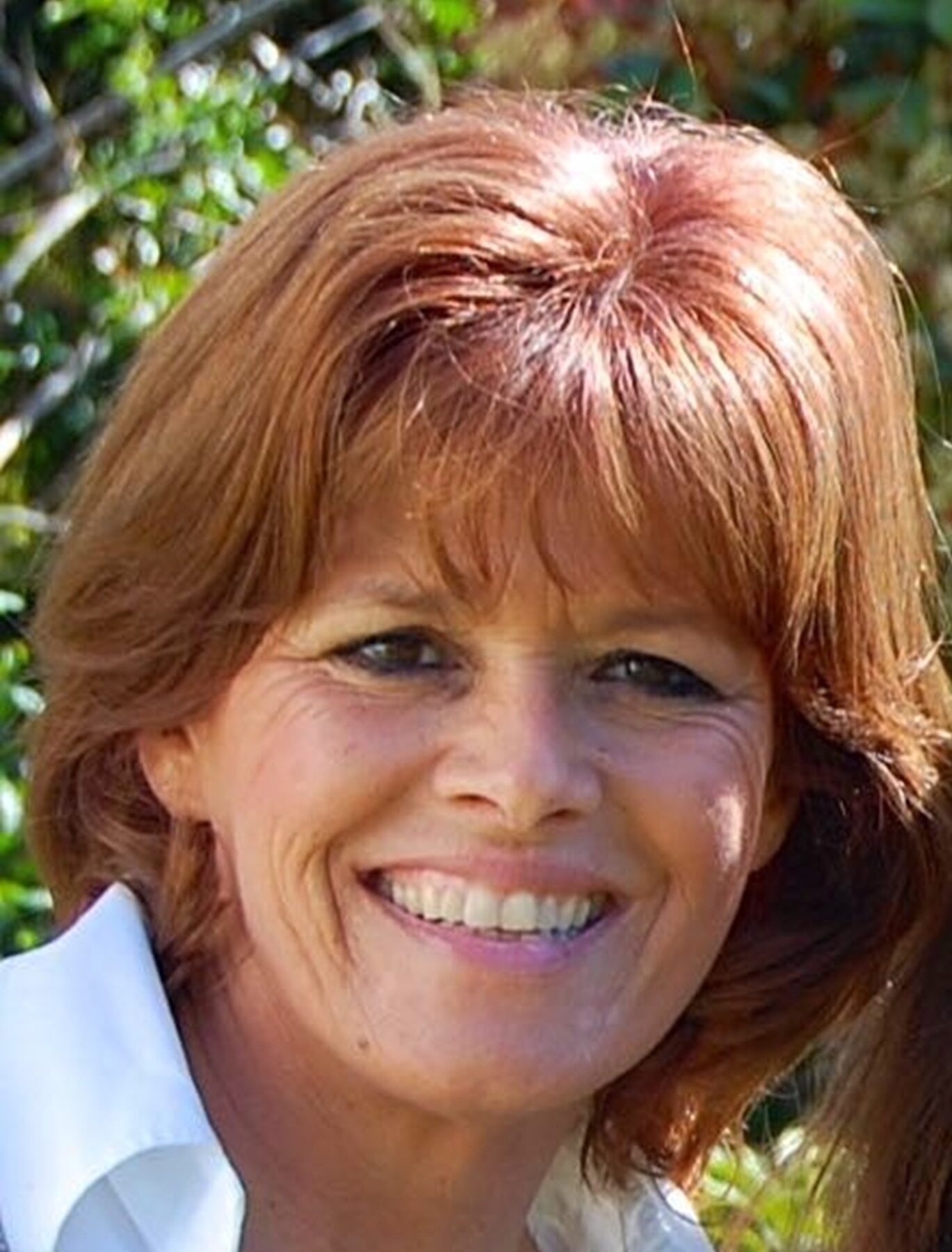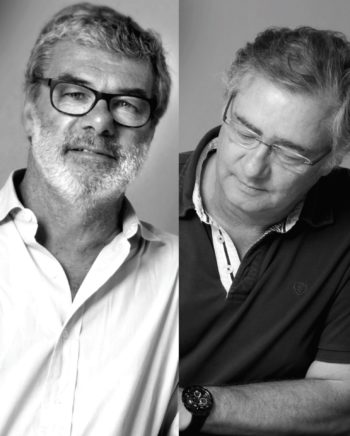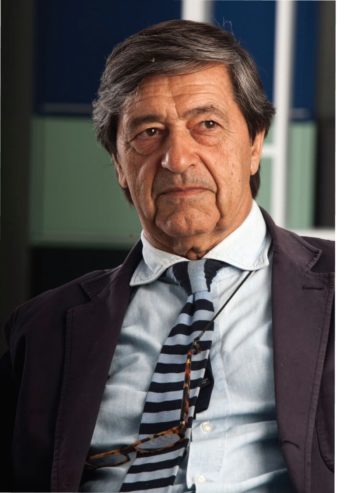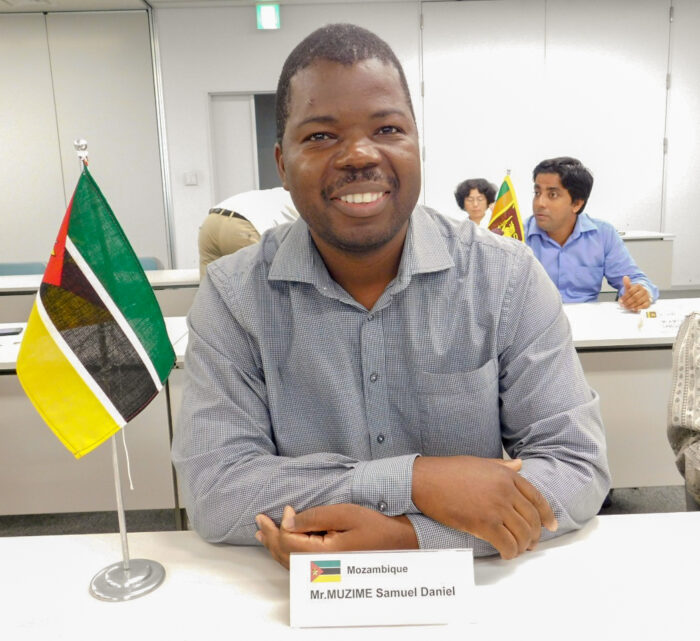A conversation with Joana Santiago

A conversation with Joana Santiago
'[At Semear we train] people with intellectual difficulties, [and help to] prepare society. The lack of inclusion is related to the barriers that society imposes. We help companies employ these people'
Academia Semear was founded in 2014 to promote the full inclusion of people with disabilities in society. Where did the idea for this project come from?
The idea came about because a disabled child was born to me in 1997 and I realized that there weren’t enough solutions for people with intellectual difficulties. Together with other parents, we set up an association, BIPP, and in 2014 we focused on adulthood, because that’s the age phase when there are fewer inclusive responses, where they can actively participate in the job market.
Your work is very comprehensive. It starts at the Academy, with training, you help to prepare companies for employment and you also do training in schools.
The Academy is a kind of university, with students taking classes from 9am to 5pm. We focus a lot on personal and social skills, because if a person doesn’t have autonomy, if they don’t know their way around, how to manage money, how to get around on public transport… they’re not ready to enter the job market. And these are the main challenges of training. Technical competence turns out to be the easiest. People with intellectual difficulties are more successful at repetitive tasks, and the agri-food sector, commerce, industry, warehousing… are very compatible areas of employment. And we have all this training on offer. During their time at the Academy, they have many experiences and they choose the area they want to pursue.
But it’s not enough to train people with intellectual difficulties, we must prepare society. In the previous generation, these people stayed at home. The lack of inclusion is related to the barriers that society imposes. We help companies to employ these people. We do corporate volunteering and team building, so that companies realize that they have value. It’s a challenge, but the results are very positive. When they are integrated into companies, they stop being subsidy-dependent and start earning a salary.
On the other hand, we have our Earth, Grocery and Ceramics projects, which are activities carried out with people with intellectual difficulties, in moments of training, but also of employability. Our products are on the market and we want them to have competitive value, a good presentation and excellent quality.
What we do in schools is educate children and young people because they are the future. We do an initial survey where we ask “do you think you’re an inclusive person?”, and everyone thinks they are, but in the end they realize they’re not. After the fun activities we do in schools, they are all better able to live with difference, and here we’re not just talking about disability, but also ethnicity, color… even to avoid bullying.
On the website he wrote: “I would like every citizen to come and visit us… On that day, I’m certain that the word inclusion would be strongly felt (…)”. Are there still many stigmas?
Yes, and when you see it, you believe it. I never thought that volunteering with these young people would be so positive in terms of changing the paradigm. People don’t expect a person with an intellectual disability to be able to do certain things. And when they see it, they believe it. Come and see the Academy, try our products, but we don’t want you to consume them out of pity, we want you to consume them because you like them and recognize their value. And Betar is an example of this because, from the moment they bought the products for the first time, they never left us again and they contribute to the employability of these people, because the proceeds from the sale of the products are used for their training. We currently have 105 trainees at the Academy and have already integrated more than 60 of them into the job market. In our team of 48 people, 14 are disabled people with employment contracts. It’s been an incredible journey.
In addition to this commitment to promoting equality, Semear is also committed to developing sustainable programs.
Sustainability is in the production of our products and in the fight against waste. We go to national producers to recover the wonderful products that don’t get picked or aren’t sold. We recover more than 10 tons of fruit a year, to make our jams, jellies, chutneys… Then, in our vegetable garden, we try to do organic farming, because we are concerned about the environment and, in addition, we avoid the risk of people with intellectual difficulties handling chemical products. Our motto is to combine social sustainability with environmental and financial sustainability.
What are the prospects for the future?
“The sky’s the limit!” We are in the process of creating the first university for people with intellectual difficulties. We want to have a large center where society can actively participate, with conference rooms, restaurants, spaces where citizens can live with this reality.
I’d like to take this opportunity to thank Betar because it’s very good to be able to count on companies like this, fortunately we already have some allies in this mission. If everyone, like Betar, contributes a small part, we’ll be on our way to a much better world.
This interview is part of Artes & Letras Magazine #160, january 2024
Partially automatic translation from portuguese: some expressions may differ from their actual meaning.
News & Interviews
A conversation with Arch. Tomás Rebelo de Andrade
"The cyclical crises that have been occurring have made very large dents, difficult to compensate for in the wealthy times, which are also cyclical and lead invariably to the next crisis". Read more
A conversation with Arch. Miguel Arruda
‘The increase in tourism is an asset in building recovery, but it would also be a good opportunity for the implementation of new housing for former residents’ Read more
A conversation with Eng. Samuel Muzime
'The main challenges of CFM are: to be a regional reference in cargo transport at a competitive price and with safety, having infrastructures with continuous modernization and well-trained and motivated personnel' Read more




